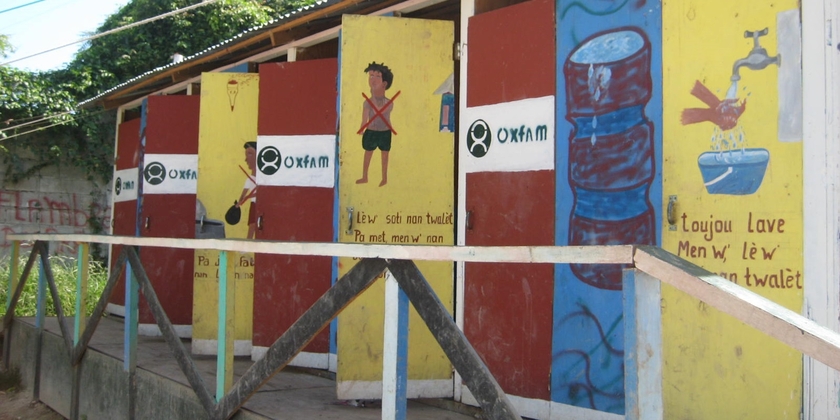Department Environmental Social Sciences
Impact of different promotional channels on handwashing behavior in an emergency context: Haiti post-earthquake public health promotions and cholera response

Regular handwashing is especially vital during disasters, when the risk of diarrheal disease is elevated. This project in post-earthquake Haiti aimed to evaluate the impact of public health promotions and cholera response on handwashing rates. The impact of the applied promotional channels proved to be divergent: some were positively associated, some were not associated and others were even negatively associated with handwashing rates.
Project details
Context
During disasters, when the risk of diarrheal disease is elevated, proper hand hygiene is especially relevant and its promotion a key activity of relief organizations. To date, the effectiveness of handwashing promotions in an emergency context has not been adequately addressed.
Objectives
The main goal of this project was to evaluate the effectiveness of public health promotions and cholera response in post-earthquake Haiti. Specific objectives were:
- To assess the current handwashing practices and the behavioral factors determining the handwashing practices.
- To assess the impact of different promotional channels on the behavioral determinants of handwashing.
- To assess the impact of different promotional channels on handwashing behavior.
Activities
Assess the impact of promotional channels on behavioral determinants and on handwashing practice.
- A survey was conducted in May 2011 in 811 households measuring the following:
- Handwashing practices
- Behavioral determinants of handwashing
- Experienced promotion activities
- By means of data analyses the following was specified:
- The key determinants of handwashing
- The impact of promotional channels on behavioral determinants and on handwashing practices
Findings
- The key determinants of handwashing were attitudinal factors (e.g. return of handwashing or disgust), descriptive and injunctive norms, self-efficacy, and coping planning.
- Of the applied 16 promotional channels all were associated with at least one of these determinants. However, some behavioral determinants (e.g. return of handwashing) were not affected by any of the promotional channels.
- Six promotional channels were positively associated with handwashing: for example respondents who had experienced hygiene radio spots or material distributions with instructions for use stated higher handwashing rates than those not experiencing these promotional channels.
- Five promotional channels were negatively associated with handwashing: for example respondents who experienced a focus group or special hygiene days stated lower handwashing rates than those not experiencing these promotional channels.
- Five promotional channels were not associated with handwashing: for example respondents who experienced information spread by megaphone or hygiene trainings stated the same handwashing rates as those not experiencing these promotional channels.
Conclusions
- Standard approaches to promote hygiene during disasters might not only be ineffective but even counter-effective.
- Rigorous evaluations of hygiene promotions are inevitable to eliminate unwanted effects such as behavior impairment.
Related publications
Project data
Duration: February to November 2011
Project partners:
- Oxfam America
- Oxfam Great Britain
- Oxfam Québec
- Intermón Oxfam
Funding: Oxfam America

